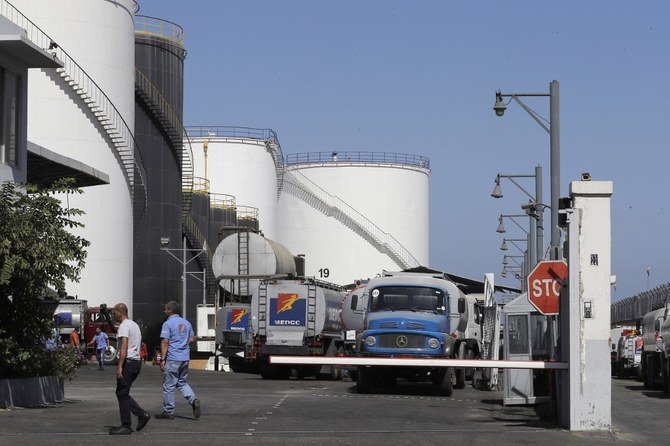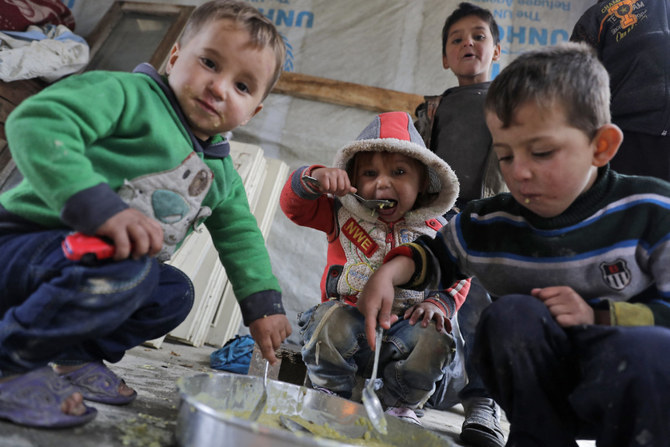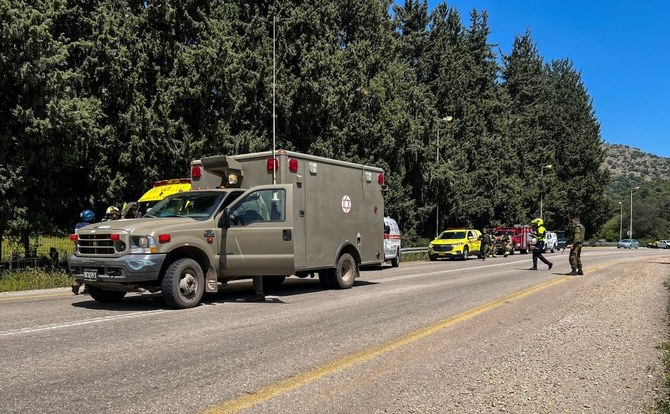BEIRUT: A Syrian refugee in Minieh, north Lebanon, died on Saturday after accidentally swallowing a large quantity of gasoline while siphoning it from his car in a black market fuel operation. He was taken to hospital but could not be saved.
Abdulrahman Darwish, the representative for the Relief Associations’ Federation in Danniye, said the man used to make deals on the black market.
Lebanon has been suffering from an acute fuel crisis during the past few months.
“He went to gas stations every day, where he waited in the queue for hours to get 40 liters of gasoline to later withdraw this quantity from his car and sell it on the black market at a higher price to those who do not want to wait in queues,” he told Arab News. “The black market’s activities have thrived during the crisis. The youth, Lebanese citizens and Syrian refugees have found themselves unemployed amid the harsh economic crisis of Lebanon. They are looking to earn money at all costs to secure food, medicines and milk for their families, and have found a golden opportunity on the black market.”
A security source told Arab News that authorities had observed a decline in the north’s robbery rate in the past few weeks, where “thugs had focused on the black market” instead of theft because it was very profitable.
“Every day, tens of them gather outside gas stations forming gangs to get gasoline and later sell it on the black market. The unemployed youth has found an opportunity to earn money by resorting to illegal means,” the source said.
According to the price list issued by the Economy Ministry on Wednesday, fuel will be sold according to the dollar exchange rate, with $1 worth LBP14,000.
Queues outside gas stations persist, along with disputes that often descend into physical violence and even shooting.
Some people had expected a decline in black market activities after the availability of fuel in the market and the gasoline price being liberalized.
However, job opportunities have emerged amid this mess. Some people provide “waiting” services, staying in the car instead of the vehicle owner to fill the tank up and earning up to LBP100,000 for doing so.
Some reserve a place outside gas stations during the night and sell the spot in the morning for those waiting at the back.
Fadi Abu Shakra, a representative of the Fuel Distributors’ Union, said the queues seemed shorter on Monday as fuel had become available and imports were ongoing.
“The activities of the black market traders who have exhausted us are likely to drop down,” he told Arab News.
The economic crisis in Lebanon that peaked in 2019 after the depletion of its financial resources has led to a complete economic collapse, where hundreds of businesses shut down and thousands of employees were laid off.
The latest report from the Central Administration of Statistics said the unemployment rate in 2020 increased to 55 percent for those in informal employment and 45 percent for workers in the formal economy.
The unemployment rate among college students reached 35.7 percent, and the highest rates of unemployment were noted in Akkar, Central Bekaa and Aley.
The International Labor Organization noted the extent of “informal employment and vulnerability among the most deprived Lebanese citizens, as well as Syrian refugees in 2021.”
According to Labor Ministry estimates, unemployment in 2020 increased to about 36 percent and is estimated to reach 41.4 percent by the end of 2021.
Statistics from the National Social Security Fund from the start of 2020 until Feb. 2021 indicated that 40,000 people who were registered with the fund had exited the labor market.
Darwish said: “Syrian refugees in Lebanon were severely affected by the economic crisis. Some refugees are selling their food rations to buy medicine or visit a doctor.”






















